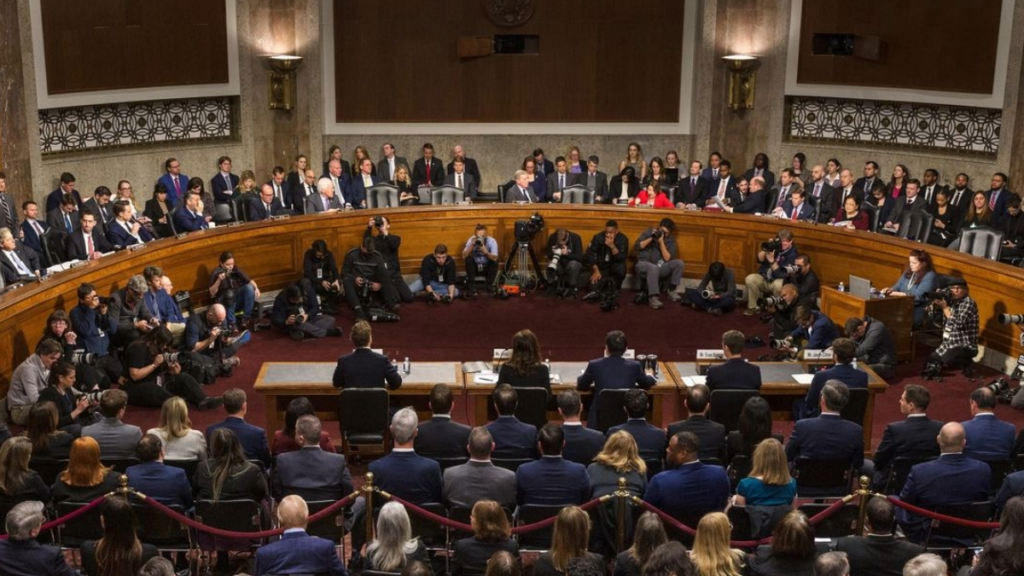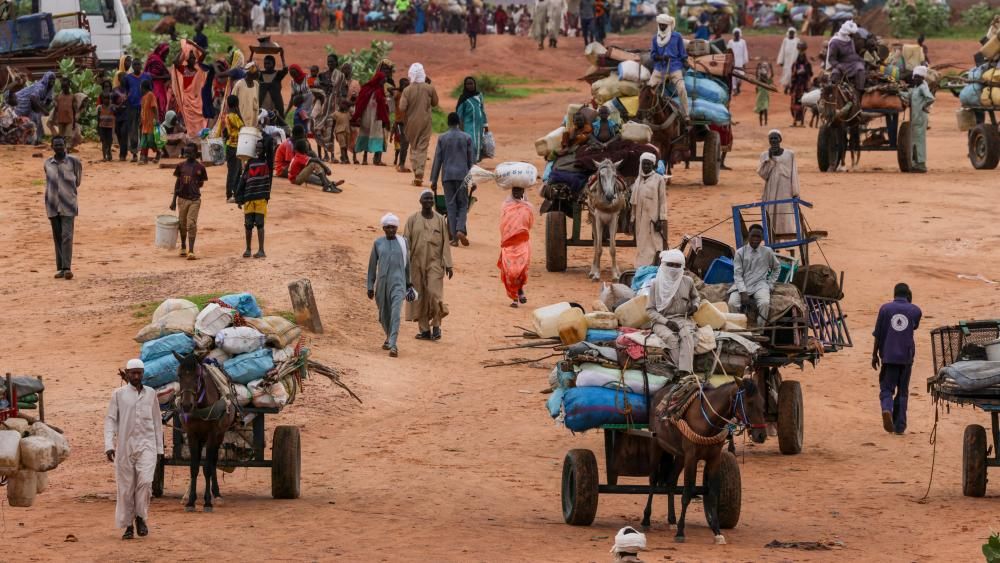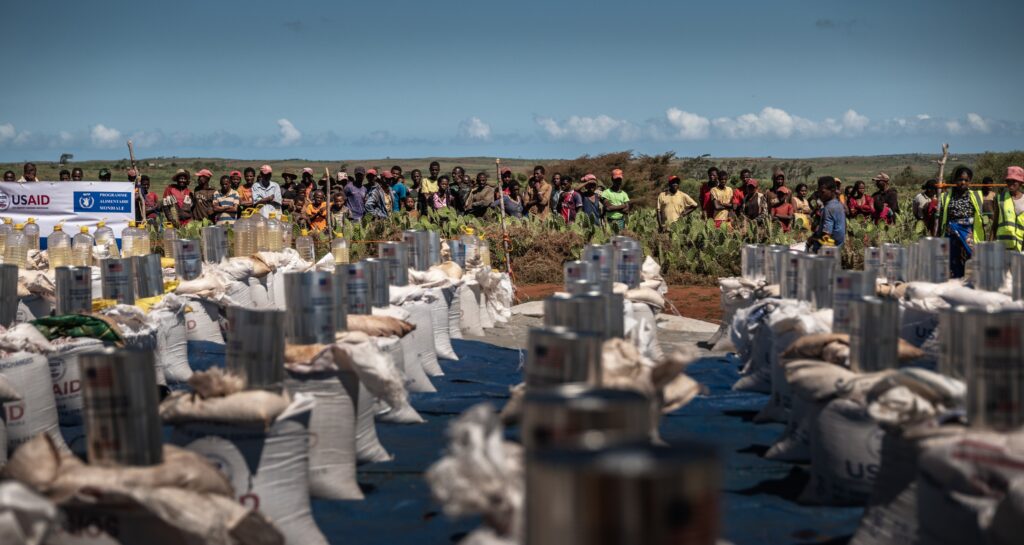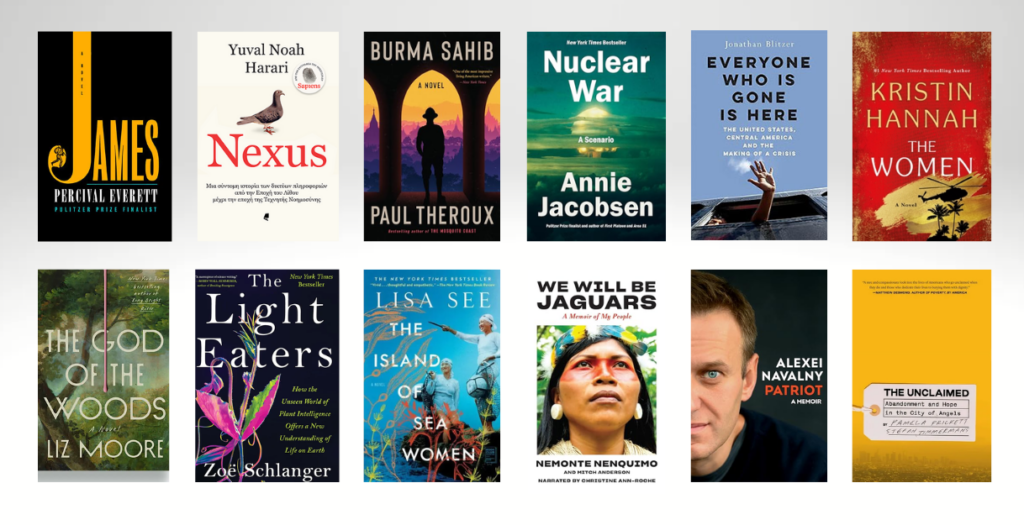A couple times each year, the UN Foundation shares some of our favorite books that help us make sense of the often messy world around us. As we compiled this summer’s must-reads, we were lucky enough to find a piece that helped us also make sense of ourselves in the midst of these moments.
That book was Radical Humility: Be a Badass Leader and a Good Human, by UN peacekeeper (and good human) Urs Koenig. Because who better to contribute their wisdom than someone who’s seen the very best and worst of humanity when the stakes are high, personalities are big and the whole world is watching.
We spoke with Urs from his home in the Pacific Northwest. Here’s what he had to say.
BWC: Our readers are big fans of the Blue Helmets, so let’s start with your peacekeeping career. You served in Kosovo for NATO and the Middle East under the banner of the UN, where humility feels like an afterthought in the midst of getting the mission right. Of all the lessons of your service, why did humility stand out?
Koenig: The most successful people – and most successful missions – are those that never stop learning, evolving and adapting to new realities. Always keeping their egos in check. That’s why humility matters. It isn’t about serving in “top-down” environments, but about looking around us. Great leaders are attuned to all the situational factors – and willing to take feedback and adapt to those factors.
“The most successful people – and most successful missions – are those that never stop learning, evolving and adapting to new realities.”
I’d also say that the military – including peacekeeping – is a people business. And what do great businesses understand? Relationships. With colleagues, comrades, clients and communities. The best peacekeeping commanders are those focused on building strong relationships.
BWC: Tell me a story that helps bring that point into focus. Because isn’t “top-down” direction the prevailing reputation of your field?
Koenig: Yes and no.
Yes, you’re right that hierarchy is what the military is known for. No, because as the old adage goes, “What got you here, won’t get you there.” You have to connect and grow based on the people and conditions around you.
Two stories come to mind.
First, when I deployed as a team commander to Kosovo, I hadn’t met two of my most senior colleagues. We were about to step into a high stakes arena with little room for error and I didn’t even know if they had kids. You can’t lead if you don’t know what experiences and expertise your people bring to the table, right? What talents do we forfeit when we fail to connect?
So I took them to lunch. I knew that the quickest way to reduce hierarchical distance with them was to do something very human and non-hierarchical together. I learned as much as I could about them personally – their families, professional experiences, hobbies, and plans after the mission. I also inquired about their hopes and concerns about our upcoming mission together and their expectations of me as their commander. It helps that I love people, but these lunch meetings had a clear business purpose. Building collaborative relationships and trust, I knew, would make it much easier for us to rely on one another. I followed these initial lunch meetings with regular one-on-one meetings with each of my team members for the duration of the mission. That initial act of breaking bread paved the way for deep connection, trust, engagement and commitment. My leadership during my mission was of course not perfect and I made plenty of mistakes. However, leading relationally helped my team achieve one of the high performance ratings of all teams in the peacekeeping force and we fulfilled the mission to the fullest satisfaction of our commanders
And my second story…
There was a very serious health emergency during my service that became a true all-hands-on-deck, five-alarm fire, when we needed access to medical evac resources that we simply didn’t have. What we did have were long-nurtured relationships that enabled us to access private aircraft, private clinicians and private communications channels to save a man’s life. That happened because we’d first taken the time to cultivate connection before things hit the fan. There is no doubt that the best missions are founded on great relationships so every difficult moment is met with an equally deep and shared commitment to get the work done.
BWC: Shifting gears a bit to the “id,” as Freud would say, how do you think about leadership when a leader’s ego – their brand – is so tied to their cause that they just can’t see a way forward. When a conflict ends, their identity ends. How do you change the hardwiring of historically embedded, personally entrenched identity?
Koenig: It’s said that every strength is a weakness overdone.
Let’s say you have a leader who believes they’re identity is that guy who yells at their subordinates (and I say “guy” intentionally here). In the throes of change, I may ask why they keep yelling at their teammates. They respond that if they stop yelling then their crew won’t push themselves as hard.
Really?
There’s a difference in “despite” behavior and “because” behavior. Your team may be doing great work despite your yelling, not because of yelling. It’s critical to figure that out and lean into spaces where the work is happening because of your leadership and not despite it.
BWC: Do you think the same lessons around humble leadership apply as much to institutions as people? For example, how do you think the United Nations stacks up in the context of humble leadership?
Koenig: It’s true that the structure of the UN isn’t exactly representative of today’s world. Consider the Security Council, where efforts are rightly focused on bringing Africa and the Global South more preeminently into the process. That’s an opportunity to more effectively show humble leadership and recognize an evolving world.
On the other side, the UN actually does the “human side” of the work quite well – what some consider the “soft stuff.” But that soft stuff of leadership is some of the hardest stuff we do.
“The UN actually does the ‘human side’ of the work quite well – what some consider the ‘soft stuff.’ But that soft stuff of leadership is some of the hardest stuff we do.”
Think about it. 193 member states come together every day in a building in New York City – to talk. Like peacekeeping, the operational work happens in the field and in the organizations and programs of the UN. But the hardest stuff is having those 193 personalities and agendas sitting side-by-side in a single General Assembly hall with a shared commitment to showing up. They may be there to fight at times, yes, but they’re also there to converse.
That’s meaningful.
BWC: And now to ask about the people in the UN. Do any individuals stand out to you in the context of humble leadership?
Koenig: Former Secretary-General Dag Hammarskjöld is a shining example of a highly effective and radically humble world leader – and an amazing human. He was the youngest UNSG to ever be appointed and the only to die in office. In fact, he was actually killed in an airplane crash en route to ceasefire negotiations in the Congo. He played a crucial role in the Suez Crisis, established the UN Emergency Force, and refused to bend to Soviet pressure and resign (which, some argue, cost him his life). After his death, President John F. Kennedy said, “I realize now that in comparison to him, I am a small man. He was the greatest statesman of our century.” Hammarskjöld is also one of the only four people to have been awarded the Nobel Price, posthumously.
Less well known is that he was a really humble leader. Upon receiving news of his nomination for UN Secretary General, he wrote: “With strong feelings of personal insufficiency, I hesitate to accept candidature, but I do not feel I could refuse to assume the task imposed on me should the [UN General] Assembly follow the recommendation of the Security Council by which I feel deeply honoured.”
After his appointment, Hammarskjöld made a point of visiting every UN department to shake hands with as many workers as possible, eating in the cafeteria as often as possible, and relinquishing the Secretary-General’s private elevator for general use. He also spearheaded the building of a meditation room at the UN headquarters, where people could quietly retreat and that had no barriers based on faith or religion.
Hammarskjöld definitely embodied humility – and strength.
BWC: People have a lot of feelings about UN peacekeepers. What’s the best compliment you ever received during your service?
Koenig: “With you, Captain. Anytime.”
That’s as applicable in the trenches as in the community. When people trust leaders, they trust processes, knowing we’re all in this together. We have each others’ backs. Humble leadership is not weak or meek – it’s relational. And, as a peacekeeper, it’s life-saving.
“Humble leadership is not weak or meek – it’s relational. And, as a peacekeeper, it’s life-saving.”
Learn more about UN Peacekeeping here.




